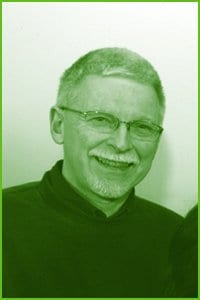“I got hooked, I guess, on empowerment, the transformation of The Helpless Queer with no history and an unlikely future into a Someone, into a group of Someones, who uncovered a history, who found heroes, who grabbed today and shook it till tomorrow fell out of its pocket and there was a place there in it for us.”
-Gerald Hannon
I first encountered the misleadingly sleepy-eyed author of those electrifying words in the spring of 1973.
I had just returned from a small-town university to Toronto; the gay liberation movement was bubbling and I wanted in. That brought me to my first meeting of those legendary Someones, the Body Politic Collective, Gerald Hannon among them. I decided to stay.
Eleven tumultuous years later, The Body Politic (TBP), a monthly addressing a national readership, could no longer feed the newly awake and hungry crowd of Someones in the city right outside our doors. Xtra-local and biweekly-was born.
But sustained for years on the caffeine of revolution, we had rarely sampled that staple of survival, financial common sense. At the end of 1986, a desperate financial crisis forced a desperate decision: TBP would die so that Xtra-with its larger readership-might live.
Xtra survived, then bloomed, enriched by Cruiseline, our new chatline business. And we dreamed of rebuilding our once far-flung readership. We planned Xtra’s West Coast twin.
In July 1993, Xtra West spoke its first words to Vancouver. And Vancouver started talking back.
Pretentious journalists call their work the first draft of history. Xtra West serves more humbly, both chair and secretary of a rowdy town-hall meeting that never adjourns. We draw up an agenda, urge some to speak, demand brevity of others, keep speakers to the point and walk the cranks to the door. We take the minutes, including this, omitting that, hoping to draw an honest and useful record out of the democratic chaos.
In short, we are keepers of memory and leaders of debate.
Memory is important; it tells us that circumstances change, that the present is not eternal. It feeds our sense of agency; we learn that we can step together onto history’s stage and change the story, if we choose. But such collaboration demands deliberation and debate.
I have visited Vancouver frequently for almost 30 years. For me, the city is an album, an array of snapshots taken at irregular intervals. They tell an uneven story.
Throughout the ’70s, the city was a beacon of gay activism. Later it slid into a forgetful sleep. On one visit, I was taken to Coal Harbour, where cherry trees had been planted, each named for an individual who had died of AIDS. A few years later, when I mentioned this memorial, all I got was puzzled looks.
Staggered by the epidemic, depressed by the province’s Social Credit regime and benumbed by an autistic gay press, gays and lesbians were caught in an eternal now.
But in the early ’90s the city’s communities seemed ready to reclaim their once raucous reputation.
Commercial Dr hummed. Davie St and Xtra West were born. The ranks of gays and lesbians in officialdom swelled. Little Sister’s stubborn battle against our high-handed federal nanny continued to inspire. (And still does: Like a popular TV series, it never ends.)
But at the same time, the community centre on Bute at Davie atrophied. Social spaces disappeared. West End gay men seemed hesitant: Some years they strutted and loitered as if they owned the place; other years they stepped gingerly, as if traversing enemy terrain.
Overall, I gained an eerie sense that Vancouver’s gays and lesbians hoped to tiptoe, unobserved, to dignity and freedom.
Perhaps that time of guilty innocence ended early in the morning of Nov 17, 2001. We’ll see.
In William Deverell’s latest thriller, Mind Games, the murder of a gay man in Stanley Park mobilizes our communities: “Vancouver was almost in a state of siege, demonstrations were continuing. Gay rights activists were camped on the doorstep of the Attorney General’s office in Victoria.”
Well, it is a work of fiction. Nevertheless, things have changed. Vancouver’s gays and lesbians are a group of Someones once again, a people with heroes and a history, demanding a tomorrow that’s different from today.
Xtra West will continue to nurture that change: Watching, warning, reminding, exhorting. The rest is up to you.
* Ken Popert is executive director of Pink Triangle Press.

 Why you can trust Xtra
Why you can trust Xtra


